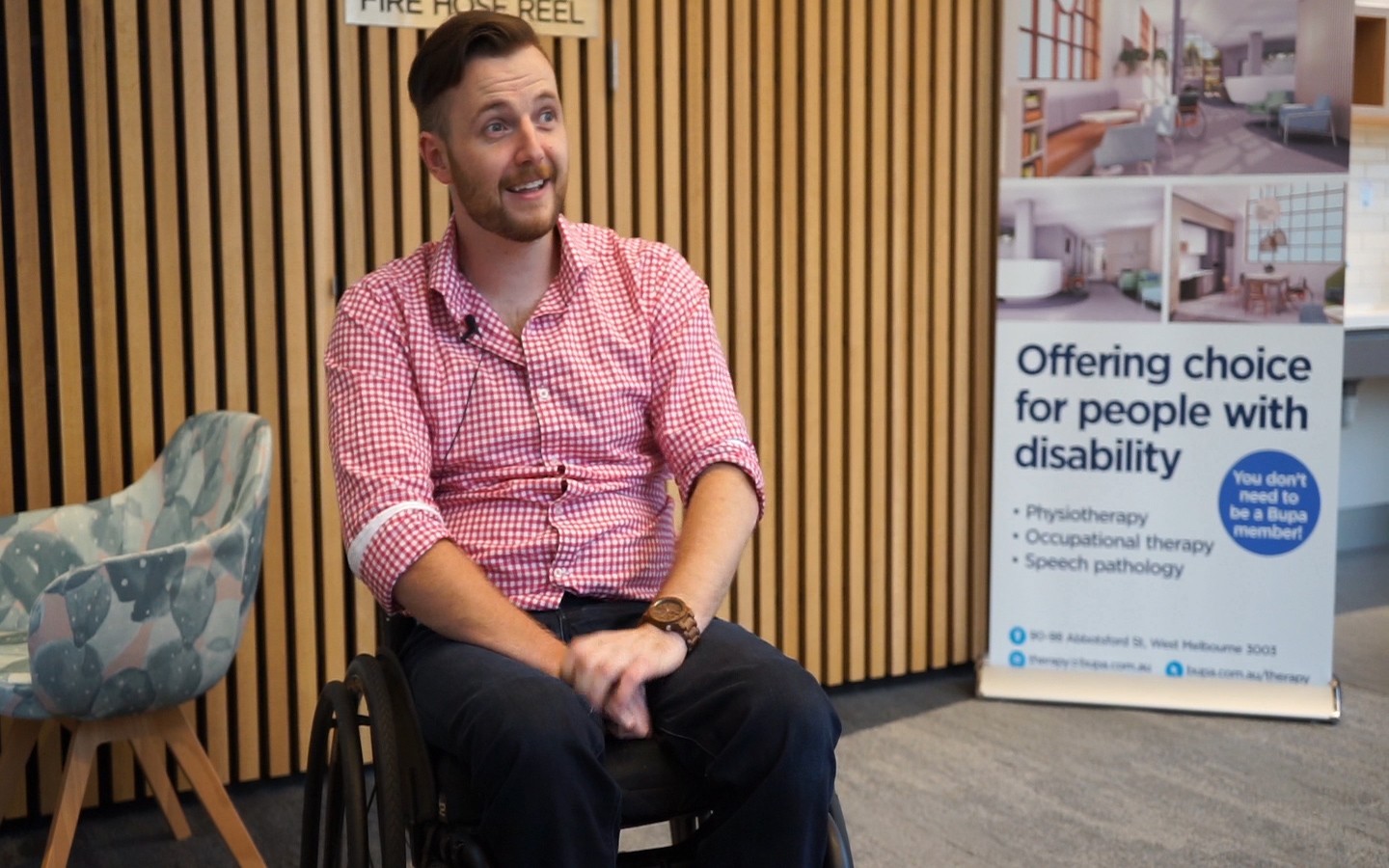Little things can make a huge difference
Adam Woods wants people to think about the stereotypes people who live with a disability face everyday.
After a motorcycle accident two years ago left him a quadriplegic, Adam Woods has been helping to influence the sector and get people to understand that disability isn’t just at the extremes.
“Many people assume that disabled people are either severely disabled with high level care needs with permanent full time attendant carers, or are Paralympic athletes.
“There is a huge group of people in the middle that don’t fit those brackets who live totally regular lives with a disability. People who have careers, relationships, houses, travel, kids,” he says.
Adam, who is a contractor at Bupa, doesn’t want to be seen as an inspiration, for just trying to get on with his life.
My story might be inspirational for some, which is great, but most of the time when I get told that, it’s for simply getting on with things – I go to work, drive, catch public transport, go for a drink with friends and my better half – all really mundane things that everyone else does too.
“I’m just a guy who has to do things a bit differently to most people – I’ve become very adaptive to things and a keen problem solver. Inspiration, positivity and hope are all wonderful things and should be celebrated, but not in a way that ends up being condescending.”
While Adam is open with people who ask why he’s in a wheelchair, he says there can be many misconceptions the public make about people living with a disability.
“It's perfectly reasonable to be curious. When people ask politely about why I’m in a wheelchair, I’m always happy to answer.”
“The trick here is to be respectful, sometimes someone might not be in the mood, or have some other reason not to tell their story, and that’s ok too.
As a quadriplegic person my usual issues are mostly getting around, getting into or out of places or reaching things – but I often find myself having to tell people my legs don’t work, but my brain sure does!
It’s been less than two years since his accident and during that time Adam has seen gradual but positive change to make things more accessible for people in wheelchairs.
“When it comes to accessibility, making things more accessible helps more than just people with a disability, it helps all people,” he says.
Victoria’s regional parks are well thought out and beaches are rolling out access mats, and more accessible tram stops are being built.
“Those sorts of little accessibility accommodations can make a big difference to more than someone with a disability.”
“Understanding when things like that are done, its done for the good of everyone, not for just individual people,” adds Adam.
Since leaving hospital, Adam has focused on getting better and returned to work this year in learning and development, a job he did before the accident.
“People think that having a physical disability can also mean you have an intellectual disability. It can mean that people assume that aren’t capable of doing some kind of professional role.”
It’s really important to me to realise that when you are working with someone with a disability, go and just say hi and find out who they are. They’re real people, they’re normal people, just like everyone else. Encourage people to see the merits of the person in front of them and avoid assumptions about someone’s capability or reliability.


